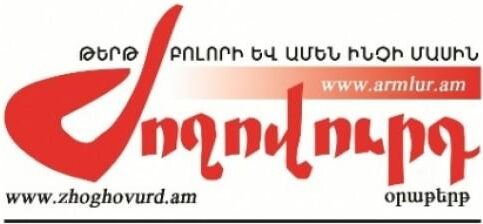The management of “Zhoghovurd” daily turned to the Information Disputes Council, requesting an opinion about Gurgen Aghajanyan’s claim against the newspaper. Examining this case, Information Disputes Council publishes its professional opinion.
On 06 August, 2011 the editorial department of “Zhoghovurd” daily received an unsigned letter via post, which contained information about the unlawful acts of the former head of the State Property Management Department under the Government of the Republic of Armenia Karine Kirakosyan and former Deputy Head Ashot Markosyan. The envelope contained the following information about the sender: sender – Gurgen Aghajanyan, address – Tigran Metsi 4, Yerevan. The letter was sent as a receipt notification, where the return address was that of the State Property Management Department. For the sake of clarifications, the newspaper talked to Karine Kirakosyan and on 09 August, 2011 published an article titled “They Demand from Galust’s Son”. The article included the facts listed in the letter and Karine Kirakosyan’s response.
The next day Gurgen Aghajanyan arrived at the editorial department and insisted that he is not the author of the letter, that he had not written any letters about the listed facts and had not sent it to anyone. Then he presented a written response and demanded that it be published in the newspaper as a refutation. The Newspaper denied publishing the refutation text, reasoning that the contextual requirements for refutations were not maintained in the text.
Gurgen Aghajanyan took it to court, demanding that a refutation be published and that AMD 804 000 be compensated (AMD 500 000 for slander, AMD 300 000 for lawyer’s fees and AMD 4 000 for the paid state duty fee).
The Information Disputes Council finds that although from a legal perspective the media outlet had the right to publish the content of the controversial letter, from a professional good-faith perspective it would have been preferable to publish the letter, without mentioning the name of the author (as information from an anonymous source), or, parallel to mentioning the name of the author, they could have also mentioned that the media outlet was not sure who the real author of the letter was, because it was not possible to verify the sender’s identity. Because this was not done, in the situation created after publishing the article it was necessary to grant the citizen with a chance for refutation or response, as much as would be necessary to state that Gurgen Aghajanyan was not the author of the controversial letter.
The Council also finds that the plaintiff’s material compensation demands are not proportional and justified, because they do not serve their main purpose and as such are not necessary in a democratic society.
